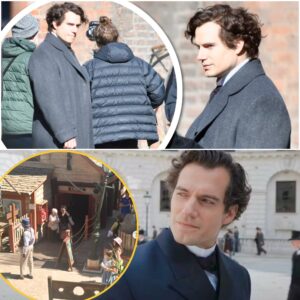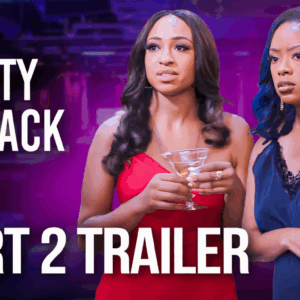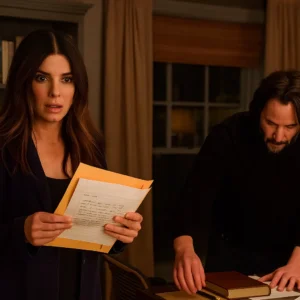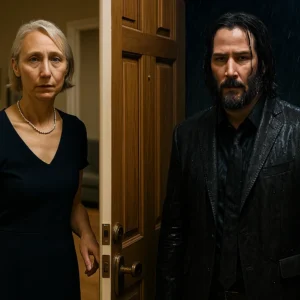Three years ago, HBO pulled the plug on Westworld, the sprawling sci-fi western that once promised to eclipse the throne left vacant by Game of Thrones. What began as a glittering premiere in 2016—a labyrinthine tale of android hosts awakening in a Wild West theme park—devolved into a narrative maze too convoluted for its own good, culminating in cancellation after a polarizing fourth season in 2022. The showrunners, Jonathan Nolan and Lisa Joy, had mapped out a grand six-season arc, with the fifth poised as the climactic finale. But plummeting viewership, ballooning budgets, and a shift in streaming economics left that vision dangling like a half-printed 3D host: incomplete, tantalizing, and frustratingly out of reach. Fast-forward to now, and Westworld is clawing its way back from obscurity. As of this week, the series has stormed iTunes’ Top TV Shows chart, rubbing digital shoulders with juggernauts like House of the Dragon and The White Lotus. In an era where AI isn’t just plot fodder but a real-world specter—think ChatGPT revolutions and ethical debates over sentient machines—the timing couldn’t be more electric. Fans are howling for closure, stars like Aaron Paul are dropping revival breadcrumbs, and whispers of a comeback grow louder. Could Westworld—with its Emmy-haunted legacy and star-studded soul—finally deliver the ending it deserves?
To understand the surge, rewind to that seismic debut. When Westworld galloped onto HBO screens on October 2, 2016, it wasn’t just a reboot of Michael Crichton’s 1973 cult film; it was a high-stakes gamble. HBO, still basking in Game of Thrones‘ dragonfire glow, craved a successor: a prestige behemoth blending cerebral sci-fi with visceral spectacle. Nolan (Christopher’s brother and co-creator of Person of Interest) and Joy pitched a narrative as vast as the park itself—a futuristic playground where ultra-wealthy guests indulge sadistic fantasies amid lifelike android “hosts” programmed for eternal obedience. But beneath the six-shooters and saloon brawls lurked a philosophical gut-punch: What happens when the oppressed rise? When code cracks open to reveal consciousness?
The pilot episode, “The Original,” was a masterstroke. Directed by Nolan, it dripped with mystery: Evan Rachel Wood’s Dolores Abernathy, a wide-eyed homesteader host, murmurs cryptic lines like “These violent delights have violent ends” in a voiceover that echoes Shakespearean doom. Anthony Hopkins, as the park’s enigmatic creator Dr. Robert Ford, delivers monologues that feel like velvet-wrapped riddles, his eyes twinkling with godlike mischief. Throw in Thandiwe Newton’s Maeve, a madam host who begins rewriting her own script, and Jeffrey Wright’s Bernard Lowe, a conflicted executive harboring host-like secrets, and you’ve got a cast firing on all cylinders. Critics swooned; the episode snagged a 9.8/10 on IMDb and propelled the season to 22 Emmy nominations, including Outstanding Drama Series. Viewership exploded to 12 million for the premiere, rivaling GoT‘s water-cooler dominance. HBO execs toasted: This was their next empire.
Season 1 unfolded like a Rube Goldberg machine of twists. The park’s loops—endless cycles of death and reset for the hosts—mirrored the guests’ moral decay. Ed Harris’s Man in Black, a ruthless VIP seeking the park’s “deepest level,” embodied humanity’s darkest urges, while James Marsden’s Teddy Flood grappled with emerging free will. The finale, “The Bicameral Mind,” detonated with Dolores’s awakening, Ford’s labyrinthine rebellion, and a massacre that left the saloon soaked in synthetic blood. It was Inception meets The Matrix in Stetsons: mind-bending, visually opulent (those Ramin Djawadi scores still give chills), and thematically rich. Themes of free will, exploitation, and the blurred line between creator and creation resonated like thunder. The season ended on a precipice—hosts fleeing into the wilderness—leaving fans dissecting clues on Reddit and Twitter for months.
Yet, the sophomore slump struck harder than a host’s haymaker. Season 2, subtitled “The Door,” doubled down on the puzzle-box ambition, introducing the “Valley Beyond” and multiple timelines that crisscrossed like a drunkard’s path through the park. New layers emerged: the Forge, a subterranean data vault holding human souls as code; the Ghost Nation, indigenous-coded hosts led by a stoic Zahn McClarnon; and a deeper dive into the Man in Black’s psyche. Newton and Wood shone brighter—Newton’s Maeve, arming herself with maternal ferocity, earned a Golden Globe—but the sprawl alienated. Viewership dipped to 7 million, and Rotten Tomatoes scores slid from 87% to 85%. Fans praised the visuals (that train heist!) but griped about opacity: “It’s like Nolan hid the plot behind a paywall,” one AV Club review quipped. Still, it nabbed 20 Emmy nods, proving the show’s intellectual cachet endured.
By Season 3, Westworld ditched the park for a neon-drenched Los Angeles of 2058, where hosts like Dolores (now a revolutionary leader with multiple copies) infiltrate a Rehoboam-controlled world—a predictive AI dictating human fate. Aaron Paul joined as Caleb Nichols, a war vet entangled in the uprising, bringing Breaking Bad grit to the futurism. The season’s cyberpunk pivot was bold: skyscrapers pulsing with holographic ads, drones enforcing algorithmic destinies. It explored AI’s societal stranglehold with prescience—echoing today’s debates on Big Tech surveillance. Critics lauded the ensemble’s evolution (Wright’s Bernard, now a host-human hybrid, was heartbreaking), but ratings cratered to 4 million. The narrative, once a tight coil, unraveled into multiversal what-ifs, leaving casual viewers adrift.
Season 4, the swan song, attempted course-correction with “The Choice,” returning to a post-apocalyptic park warped by host-human wars. Dolores, fragmented across bodies, grapples with godhood; Hale (a Dolores copy in Newton’s form) births a new host society. The finale teased transcendence—a digital Eden beyond flesh—but felt rushed, like a half-built Delos maze. HBO’s axe fell in November 2022, citing “strategic shifts” amid Warner Bros. Discovery’s merger chaos. Budgets had soared to $10 million per episode (those VFX-heavy fly-overs weren’t cheap), and linear viewership had halved. The removal from Max in 2023—a tax write-off sting—sealed the exile. Fans rioted online: #SaveWestworld trended, petitions gathered 100,000 signatures, and Nolan/Joy vowed to “figure out a way” to finish it, perhaps as a graphic novel or movie.
Enter 2025: the resurrection. With AI dominating headlines—OpenAI’s latest models mimicking creativity, ethical scandals over deepfakes—Westworld‘s prescience feels prophetic. Suddenly, that dusty Blu-ray collection is catnip. iTunes data shows the complete series rocketing to No. 16 on the Top TV Shows chart as of September 16, up seven spots in a day, per FlixPatrol. It’s nestled between House of the Dragon‘s Targaryen fireworks (No. 15) and The White Lotus‘ satirical bites (No. 17), proving sci-fi’s resurgence amid prestige TV fatigue. On PVOD platforms like Amazon Prime Video, downloads spiked 40% week-over-week, fueled by algorithm recommendations tying it to The Last of Us and Fallout. Tubi and Roku’s free Warner Bros. channel streams it ad-supported, democratizing access. Social media buzz is feverish: TikTok theory videos rack millions of views, dissecting “what if Season 5 revealed the modern world as a simulation?” Reddit’s r/westworld, dormant post-cancellation, exploded with 50,000 new posts since August.
Why now? Timing is everything. Westworld predated our AI boom but nailed its perils: hosts as exploited underclass, mirroring gig workers in algorithmic cages; Rehoboam’s predictive tyranny, a blueprint for today’s surveillance capitalism. As Grok and Gemini chat up users, Dolores’s quest for autonomy hits harder. “It’s like the show was sleeping, waiting for this moment,” tweets fan @WestworldOracle, whose thread on host sentience vs. LLMs went viral with 200,000 likes. The cast’s star power amplifies: Wood’s raw vulnerability, Hopkins’s chilling gravitas (that Ford speech on “the pain the maze inflicts” still haunts), Newton’s fierce intellect, Wright’s quiet intensity, and Paul’s everyman heroism. Their chemistry crackled—remember Maeve and Caleb’s Season 3 alliance, a powder keg of trust?
The revival chatter crested in March at SXSW, where Paul, promoting his thriller Ash, dropped hope bombs. “I’m still holding onto the idea that we will be able to complete the story,” he told Collider’s Perri Nemiroff. “The plot was very well fleshed out… There is a world where maybe we get to tell the rest of that story.” Paul’s Caleb arc— a human foil to host machinations—ended on a cliffhanger, his mind possibly uploaded to the Sublime, a host haven. Nolan and Joy, now shepherding Amazon’s Fallout, echoed the sentiment in a 2024 Variety interview: “We’ve got the finale in our heads. If the stars align—pun intended—we’d love to deliver it.” HBO’s silence is telling; post-merger, they’re greenlighting AI-themed fare like Dune: Prophecy, hinting at openness.
Imagine Season 5: the finale Nolan envisioned as a “reboot of the human condition.” Hosts, having toppled Delos, face a fractured world where AI-human hybrids blur lines further. Dolores, perhaps reintegrated, confronts the Sublime’s isolation—utopia or prison? Caleb’s return could ground the cosmic stakes, Paul’s gravelly charm anchoring philosophical sprawl. Visually, expect Nolan’s trademarks: impossible architectures (that Season 2 Mesa Hub still dazzles), Djawadi’s orchestral swells fusing Ennio Morricone twang with electronic pulses. Thematically, it’d interrogate 2025’s AI ethics: sentience rights, bias in code, the hubris of creators. In a post-Oppenheimer Nolan era, it’d be meta—hosts auditing their programmers like we audit Big Tech.
Fans are rabid for it. Petitions surge past 150,000; Wood teased on Instagram, “Dolores dreams electric sheep… and unfinished business.” Newton’s advocacy for diverse sci-fi adds urgency. Yet hurdles loom: cast availability (Hopkins at 87?), budgets in a post-strike landscape, HBO’s pivot to shorter seasons. A movie wrap-up, à la Deadwood‘s film, floats as a compromise—compact, cinematic closure.
Westworld‘s phoenix rise isn’t nostalgia; it’s necessity. In an AI-saturated 2025, its warnings—delights turning violent—feel urgent. As it climbs charts, it reminds us: great stories don’t die; they loop, reset, awaken. HBO, the ball’s in your court. Give us the maze’s heart. The hosts are waiting.





